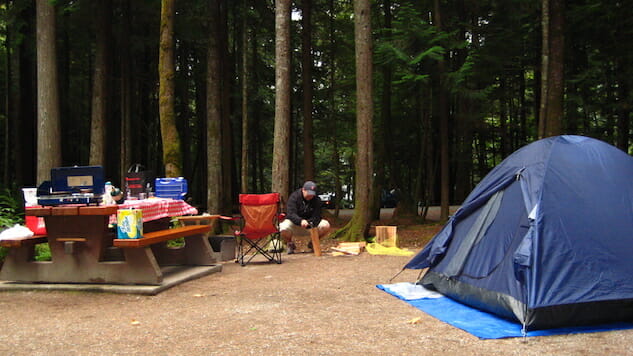A Week Outdoors Can Reset Your Sleep Schedule

A new study suggests that a week of camping can reset your “body clock,” prompting a healthier sleep schedule.
Being outside for seven days and nights allows your body to adjust to a natural light-and-dark cycle, which is often disrupted by unnatural light sources—such as laptops or cell phones—that are used after dark.
“It’s clear that modern environments do influence our circadian rhythms,” said Kenneth Wright, the study’s senior researcher. Circadian rhythm is simply a fancy way of saying body clock. Our circadian rhythms use light signals in order to govern when we should wake up versus when we should fall asleep.
Put simply, the light that our electronic devices give off when we use them at night prompt our bodies to stay awake longer than they naturally would. The artificial light tricks our brain into thinking it’s still daytime.
-

-

-

-

-

-

-

-

-

-

-

-

-

-

-

-

-

-

-

-

-

-

-

-

-

-

-

-

-

-

-

-

-

-

-

-

-

-

-

-








































